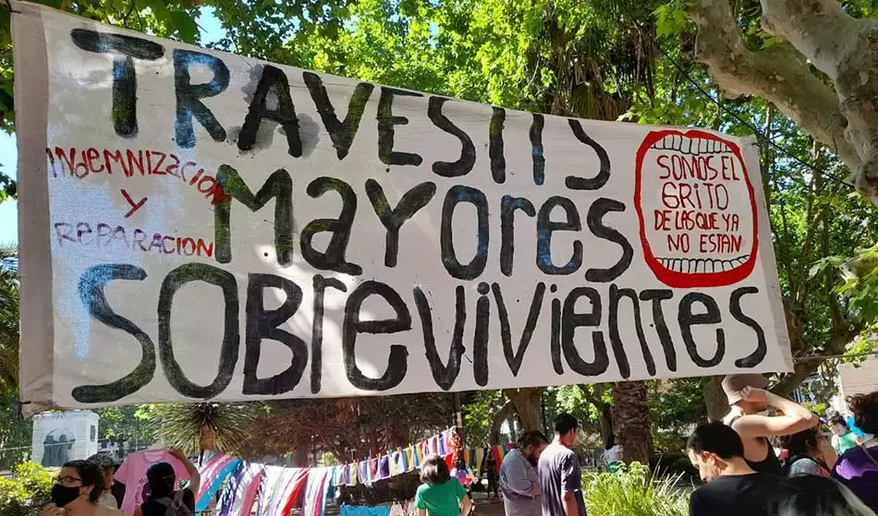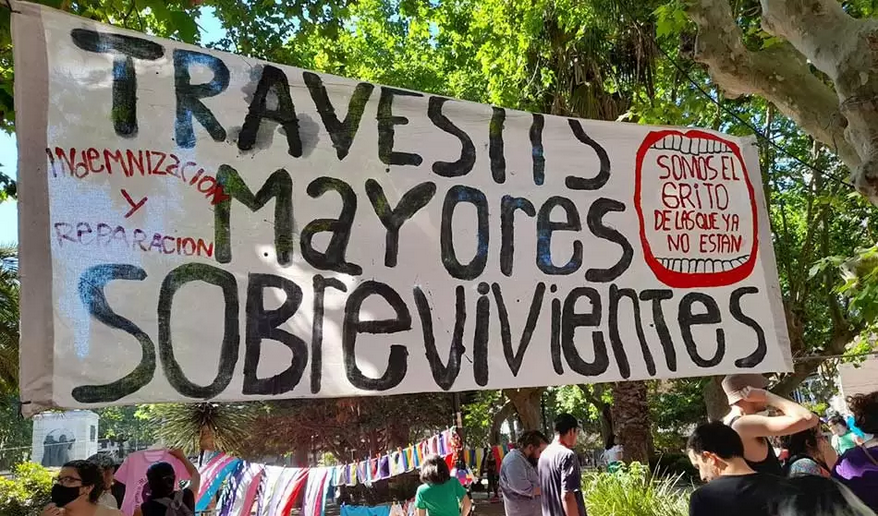
On June 18th, 2022, Argentina’s national pride day, Congresswoman Mónica Macha, a member of Frente de Todos and representative of Buenos Aires province, introduced a bill to the Argentinian congress that would incorporate the terms “travesticidio”, “transfemicidio”, and “transhomicidio” into the Argentinian penal code. These terms are relatively new to Argentina, and the world. They were invented by LGBTQIA+ rights groups in Argentina after the murder of Diana Sacayán, a founding member and leader of the Movimiento Antidiscriminatorio de Liberación (M.A.L.). In the criminal trial for Sacayán’s assailant, the judges were asked to use the term ‘travesticidio’ to refer to the case instead of ‘femicidio’, and the judges agreed. Although the Argentinian legal system agreed that the term ‘travesticidio’ was legitimate due to its proximity to gender-identity laws in Argentina, the term continued to exist without any legal distinction from femicidio. Congresswoman Macha, and many LGBTQIA+ groups, believe that the violence that transgender people, and transgender women in particular, face deserves a separate term with a separate definition. Macha believes this definition should legally respond to the social deprivation of rights behind the high levels of violence against the transgender community. This proposed law would include wording that would result in the unnatural death of any transgender person that could be connected to housing, education, or healthcare discrimination as an instance of travesticidio.
In a Notalpie, a regional online news organization based in Argentina, Karen Cuesta wrote an article title Buscan incorporar la figura de travesticidio al Código Penal, which outlines why the proposed law is necessary. Cuesta mentions that a variety of prominent LGBTQIA+ rights groups have endorsed the legislation and starts to explain the complexity of the violence that affects the transgender community. The violence is not committed randomly, but instead, it’s the social disenfranchisement associated with educational and housing discrimination that puts transgender individuals in worse socio-economic situations and at a higher risk of experiencing violence. The article takes a hopeful approach, making the argument that this legislation could have a very positive effect on the transgender community. This article shows a really interesting legal development around transgender rights and protections in Latin Amerca, which contrasts with the often overly-negative portrayals of similar issues.
In a similar but differently toned article from Política Argentina, a much greater emphasis is placed on the pre-history of this political proposal and the political implications of such a legal change. This article takes a more skeptical approach about if the bill can pass and what the bill would actually accomplish, although the article seems to still be generally in favor of the legislation. This article cites the actual wording of the proposed law, but does not provide evidence or citation for a large amount of its recanting of the pre-history of the law. The article is not incorrect, but the lack of citation is concerning. Overall, this article still represents the positive aspects of the forward-thinking members of the Argentinian Congress. However, instead of viewing the situation through the lens of organizations supporting the change and explaining the need for action, this article focuses on the legal challenge the legislation will likely face.
Both of the articles are similar and from smaller Argentinian news organizations because this story has been grossly underreported. A larger news organization Página12 wrote an excerpt about the law that is only two short paragraphs long, and there were no articles that discuss this action in English-language media. This would be the third installment of very progressive laws in favor of transgender individuals in Argentina, first the gender-identity law in 2012, second the national labor quota from 2020, and then the possible criminalization of the murder or premature death of transgender individuals in relation to the deprivation of social rights. Both articles highlight the importance of these developments and the need for more action to help the transgender community. The Notalpies article seems to be less focused on the politics of the situation and more focused on the need and support for this law. Whereas Política Argentina is very focused on the politics of the situation. Both organizations likely reported the case because they seem to be in support of the law and are generally pro-frente de todos.
This article connects back to the purpose of Latin America in the Media, to talk about stories and poor portrayals of Latin America that are perpetuated by the media (or lack thereof). This story is one that deserves more attention and has been ignored even by larger Spanish-language media outlets. The proposed law, which would perhaps be one of the most progressive uses of punitive systems to protect transgender individuals in the world, has been ignored. There is a lack of news about very positive stories from Latin America, which connects to the types of power dynamics and relationships that we have discussed all semester. These stories deserve to be talked about, and ignoring positive cases (that the international community can learn from!) is almost just as harmful as spotlighting the most negative stories.
Sources
Cuesta, Karen. Buscan incorporar la figura de travesticidio al Código Penal | Nota al Pie | Noticias en contexto. el 2 de julio de 2022, https://www.notaalpie.com.ar/2022/07/02/buscan-incorporar-la-figura-de-travesticidio-al-codigo-penal/.
Página 12. “Marcha por el Día del Orgullo | Pedirán incorporar la figura del ‘travesticidio, transfemicidio y transhomicidio’ al Código Penal”. PAGINA12, el 18 de junio de 2022, https://www.pagina12.com.ar/432708-marcha-por-el-dia-del-orgullo.
Política Argentina. Presentan Un Proyecto Para Incorporar La Figura Del Travesticidio al Código Penal. el 28 de junio de 2022, https://www.politicargentina.com/notas/202206/44910-presentan-un-proyecto-para-incorporar-la-figura-del-travesticidio-al-codigo-penal.html.
